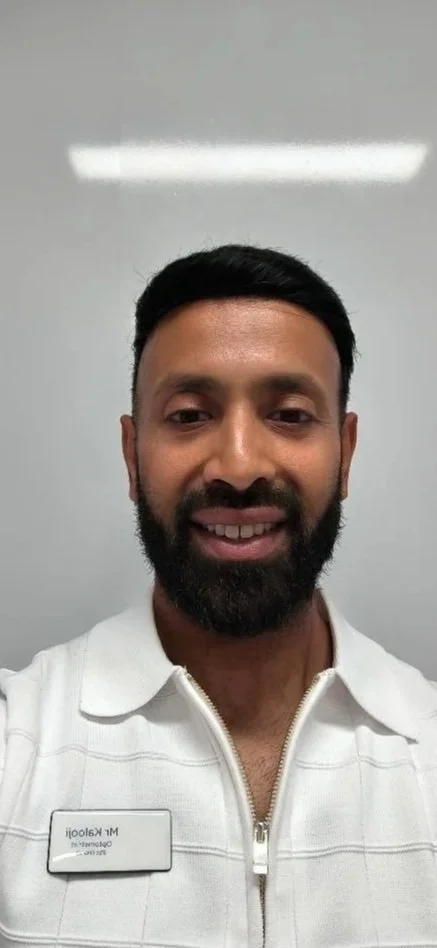Behavioural Optometry
What is behavioural optometry?
You may not have heard of this one, so we'll give you a little breakdown of what to expect from behavioural optometry.
Behavioural optometry is a specialised approach to eye care that goes beyond traditional optometry by focusing on the integration of vision with brain function and its impact on daily activities. It emphasises the quality of visual skills, considering how vision relates to learning, development, and overall performance.
Our behavioural optometrist can assess and treat various visual skills, including eye teaming, focusing, tracking, as well as their interaction with other brain systems like motor skills and attention. Behavioural optometry especially plays a supportive role in addressing some of the challenges associated with dyslexia by focusing on how visual processing impacts learning.
Adil Kalooji – Behavioural Optometrist
Offering an in-depth specialist eye examination for reading analysis In both children and adults.
I have a keen interest in Specific Learning Disorders (SpLDs), particularly dyslexia, specialising in visual processing, binocular vision, and visual stress analysis. I have a real passion for helping people with SpLDs, especially dyslexia. Dyslexia has always been a subject close to my heart.
People in my family have struggled with dyslexia, and, sadly, there simply was not enough recognition or help available during their academic years of life.
Back in University, whilst doing my Degree in Optometry between 2001-2004, I was immediately drawn to visual processing issues and perceptual distortions in individuals with SpLDs, such as dyslexia.
After qualifying as an Optometrist, I made it my career-long goal to raise awareness and make a difference for people with SpLDs to give something back to the community.
Over my 20 years as a fully qualified Optometrist, I have helped hundreds of patients with dyslexia and other SpLDs, both children and adults. There have been many occasions where the results have been so impressive that I have seen parents in tears of joy, which is hugely rewarding.
I also provide support to numerous dyslexia assessors, tutors and SENCO departments for schools & universities, all to support my goal of maximising the learning potential of every person with dyslexia and bringing different professions together to achieve this.
I have had the opportunity to present my work for SEN schools, the International Dyslexia Conference, BDA conference, dyslexia assessor groups, University SEN departments and parents of dyslexic children. I am also a proud supporting member of the British Dyslexia Association.

